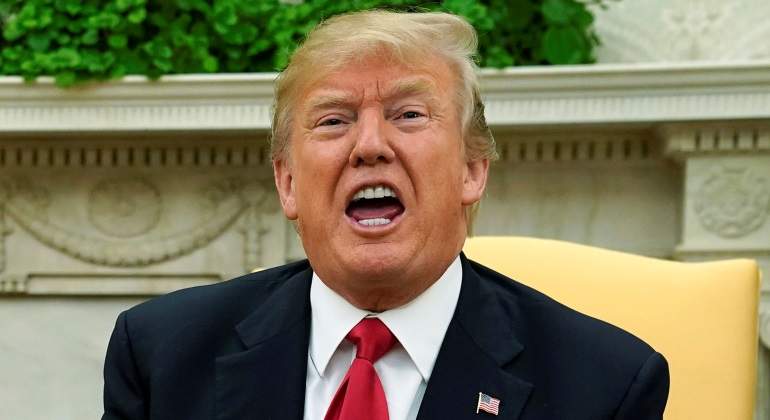
By Carlos Alberto Montaner
I don’t like Trump, first of all, because I don’t like his character as an arrogant and oppressive person (a bully) who lies or exaggerates. “Trumpologists” estimate that he has said more than twenty thousand lies, deformations of reality, or “post-truth.”
I don’t like Trump because in a civilized debate you don’t constantly interrupt or shout at your adversary but contribute ideas. The first debate with Biden was an embarrassing circus. Those are not proper gestures or messages of a United States president.
I don’t like Trump because one does not badly mistreat NATO allies, starting with Angela Merkel, the leader of Germany and perhaps Europe, and following with Dusko Markovic, Prime Minister of Montenegro, whom he treacherously and ostensibly pushed and then he did not apologize; or Mette Frederiksen, the Prime Minister of Denmark, who refused to consider selling Greenland to the US and Trump replied by canceling a scheduled trip to Copenhagen.
I don’t like Trump because as despotic as he is with his allies, he is the opposite when it comes to Vladimir Putin’s Russia or Kim Jong-un’s North Korea. I firmly believe, as the FBI suspects, that the Russians can blackmail him, not only with the mediation authorized by Trump in the 2016 and 2020 elections (perhaps negotiated by Paul Manafort) but because of the lewd “golden shower” that he allegedly requested to two prostitutes on the bed in which Barack Obama had slept during an official visit to Moscow.
I don’t like Trump because he does not respect science and scientists, as shown in the management of the Covid-19 crisis by not using the mask, making fun of Biden for using it, and publicly recommending absurd remedies, which I hope he does not consider, because I wish him well, now that he and his wife have been diagnosed with the coronavirus. Likewise, this anti-scientific attitude is manifested in the treatment given to climate change and in believing that the result of all actions is measured in dollars and cents. That is not true.
I don’t like Trump because I am a Hispanic immigrant in the US, and he rejects us. If Trump doesn’t even feel empathy for the “dreamers”, some 800,000 sociological Americans who were brought to the US by their parents, what can the rest of us expect? If Trump had been in the White House in the 1960s, Cuban refugees would not have been welcomed in the United States.
I don’t like Trump because he does not grant a residence permit to Venezuelans or Nicaraguans knowing that the dictatorships of Maduro and Ortega are unforgiving towards Venezuelans and Nicaraguans.
I don’t like Trump because he did not revoke Obama’s presidential decrees regarding the Cuban family reunification or the special program that admitted in the US “slaves in white coats”, medical personnel “hired” to governments insensitive to the pain of others; or the measure of “dry feet-wet feet” that gave access to the persecuted who presented themselves to the US authorities.
I don’t like Trump because an American president must be absolutely neat in his obligations to the Treasury, and the NYT investigation showed that Trump was not. It also proved what the NY businessmen said sotto voce: he had failed as a businessman.
Last, I don’t like Trump, because I think nationalism is the origin of wars. Because I believe that the function of a Head of State is to unite society and it seems to me that we are facing a racist and white supremacist of the worst kind.
——–
Nota bene. Many years ago, I joined the ranks of the “independents” in the United States. Sometimes I have voted for the Democrats and sometimes for the Republicans. I would have loved if the Republican candidate had been Jeb Bush, but he did not survive the primaries.
As a good liberal (in the European sense of the term), I usually endorse a combination between the conservative in fiscal matters (a limited state, the least amount of taxes and public debt), and the American “liberal” in social matters (pro-choice, pro-immigration, and a sufficiently secular state to fit agnostics comfortably).
On the other hand, I have lived 40 years in Europe and, previously, 18 years in Cuba, so I know first-hand the difference between a “Welfare State,” with its defects and its virtues, and a disgusting Communist dictatorship. No one is going to convince me that asking for health and education to be paid for through general budgets, as is the case in Scandinavian countries, or, to some extent, in Germany or Switzerland, is a symptom of totalitarianism. Perhaps it is a mistake, but that has nothing to do with the dictatorship of the proletariat advocated by Marx to set up his maddened and impoverishing scheme.
Carlos Alberto Montaner (born 1943) is an exiled Cuban author known for his more than 25 books and thousands of articles, including several novels, the last of which is La Mujer del coronel (The Colonel's wife). Some of his books are devoted to explaining the true nature of the Cuban dictatorship, for example, Journey To The Heart of Cuba.
Image - Reuters